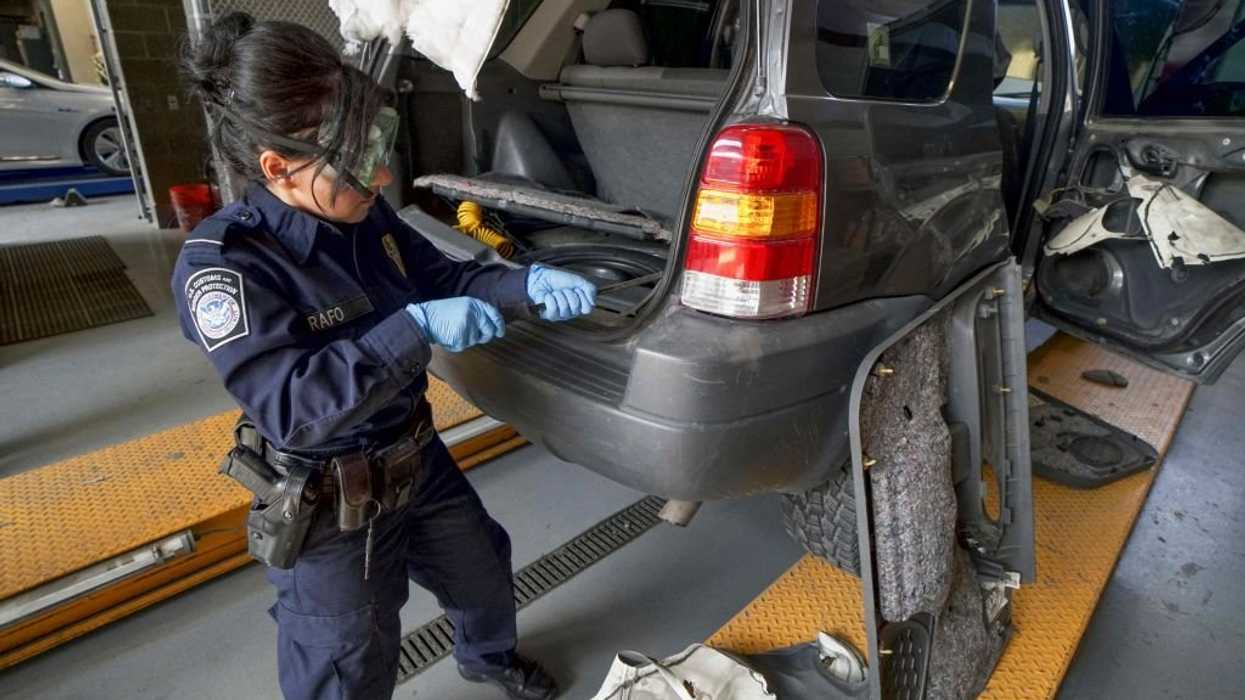
Photo by SANDY HUFFAKER/AFP via Getty Images

Earlier this year, the Department of Homeland Security secured a multiyear contract with artificial intelligence startup Altana.
The company has developed a "dynamic, intelligent map of the global supply chain," technology that Customs and Border Protection is now utilizing to track and crack down on the fentanyl supply chain.
In July, the agency awarded Altana the contract to use its map to thwart products produced by forced labor in China from coming into the country.
The tech firm uses AI to organize large sets of public and non-public data to provide CBP with insights into industry supply chains.
Altana's Atlas "cleans and unifies each customer's supply chain data to provide an integrated view of suppliers, products, material categories, shipments, and compliance activity – all connected to their multi-tier supply chain networks," the company's website explained.
Earlier this month, Altana announced that CBP is also using Atlas to prevent illegal fentanyl and other synthetic narcotics from entering the U.S. Nearly all fentanyl smuggled into the country is coming across the southern border.
Over 70,000 Americans died from synthetic opioids in 2021, according to the National Institute on Drug Abuse.
The AI-powered, ever-growing mapping tool will allow CBP to track companies that produce the precursors used to make synthetic opioids. The technology can identify the supplier and manufacturer relationship, monitoring which company is shipping the ingredients and where that shipment is going.
Fox News reported that CBP used Atlas in two massive operations that resulted in 284 arrests, 13,000 pounds of precursor ingredients, and 10,000 pounds of fentanyl seized.
Altana CEO Evan Smith told Axios, "Drug trafficking was on our minds from the moment we started building the atlas," noting that the tech firm "jumped at the chance" to expand its contract with CBP.
"It's just been very hard without AI techniques to understand these illicit, obfuscated supply chains," Smith added.
The CEO explained that CBP's supply chain graph consists of "billions of transactions, hundreds of millions of unique links and millions of companies."
"The sourcing, the procurement team, the global trade management team, the compliance team, the risk management team – all these different functions of the company that have these responsibilities across the supply chain – they're all in siloed, disconnected systems," Smith told Fox Business in October. "Getting all the information into one common operating picture is an enormous step toward breaking down those silos, but we're also building in collaboration to the product so that you can get those different siloed stakeholders into a shared source of truth, shared intelligence and then collaborative workflows to actually take action on that information."
It is unclear precisely how Altana uses its technology to track those companies.
CBP declined a request for comment, Axios reported.
Like Blaze News? Bypass the censors, sign up for our newsletters, and get stories like this direct to your inbox. Sign up here!